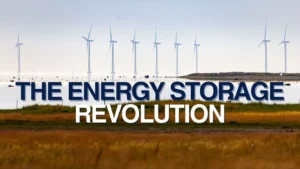As climate change escalates, sustainable food solutions are no longer a luxury but a necessity. Enter alternative proteins – marvels that promise to revolutionize how we meet the world’s protein needs. In this newsletter, we’ll delve into the latest innovations and startups reshaping our food landscape.
Carbon Emissions from Agriculture
The imperative for alternative proteins is underscored by agriculture’s substantial contribution to greenhouse gas emissions. This impact is particularly pronounced in meat production. As per research published in 2024 by Our World in Data, food production has a considerable environmental impact, accounting for 26% of global greenhouse gas emissions, as depicted below. Food production also has impacts on land use, freshwater use, pollution, and biodiversity. Addressing these impacts is essential for tackling climate change, reducing water stress and pollution, restoring natural habitats, and protecting wildlife.

Meat production, in particular significantly impacts the environment, contributing about 14.5% of global greenhouse gas emissions in 2023 as per ISPP research. Livestock farming, particularly cattle, generates substantial methane emissions, a potent greenhouse gas. Additionally, meat production leads to deforestation, habitat loss, and biodiversity decline, as large areas of land are cleared for grazing and feed crops. The use of synthetic fertilizers in feed crop production further exacerbates greenhouse gas emissions. As incomes rise in low- and middle-income nations, the demand for animal-sourced protein is set to surge, intensifying the strain on global resources. The global demand for meat is forecasted to increase by 14% by 2030, amplifying these environmental pressures and posing a significant challenge to climate change mitigation efforts.
As per research by Climate Scorecard, India’s food production significantly impacts the environment, contributing 12.7% of global CO2e emissions from agriculture in 2021, equivalent to 0.73 billion tons of CO2e. Key sources of these emissions include cropland fires, enteric fermentation, manure management, synthetic fertilizer application, and other agricultural soil emissions. Rice cultivation is a major contributor, accounting for 96.7 million tons of CO2e, or 10.8% of global rice cultivation emissions. The extensive use of water for irrigation, fossil fuel-powered pumps, low-yielding rice varieties, and synthetic fertilizers further exacerbate these emissions.
Alternative Proteins – a brief overview
Three main options are considered for finding alternatives to animal/fish-based proteins, as depicted below:

Source: Nature Communications
While alternative proteins can be discovered using the above 3 options, we can classify alternative proteins into three categories:
1. Cell-based / Cultivated proteins are cultivated from animal cells in a lab setting without the need to harm animals, aiming to replicate traditional meat products.
2. Plant-based proteins are derived from plants, with a focus on extracting and enhancing protein content to mimic traditional animal products in taste and texture.
3. Fermentation-derived proteins start with microbes or microorganisms and use fermentation processes to produce protein, offering a sustainable and scalable alternative to traditional protein sources.

Source: Financial Times
Investing in alternative proteins presents substantial decarbonization benefits. Predictions indicate that these proteins will constitute 11% of all protein consumption by 2035, potentially escalating to 22% with robust support from technology, investors, and regulators. Achieving an 11% share by 2035 could lead to a significant reduction of 0.85 gigatons of global CO2e emissions by 2030, equivalent to decarbonizing 95% of the aviation industry.
Investments in Alternative Proteins
The alternative protein market is experiencing significant growth driven by various demand and supply factors. Despite challenges such as geopolitical disruptions, environmental changes, and economic fluctuations, the market for meatless products is set to expand and consolidate further. Key drivers include sustainability issues, health awareness, ethical and religious views, environmental concerns, and animal rights. As per BCG Research, the global alternative protein market is set to reach $290 billion by 2035, representing 11% of global protein consumption.
Since 2020, $13.3 billion has been raised in funding in the global alternative protein industry, of which $1.6 billion was raised in 2023 and an additional $299 million in Q1 2024. Investment slowed in 2023 due to various factors, including high interest rates, reduced fund commitments, and fewer nontraditional investors. The investments in alternative proteins, categorized into the 3 types of alternative proteins, are depicted below:

Source: GFI
Indian Startups & Investment Landscape in Alternative Proteins
The alternative protein industry in India has undergone significant growth and development over the past five years, transitioning from a novel concept to a mainstream discussion topic among businesses, consumers, investors, and the government. Here are key highlights of the Indian market:
Startup Landscape: As per research by GFI India, India had over 113 startups focusing on plant-based, fermentation, and cultivated proteins, supported by a network of 100+ companies in 2023. This ecosystem includes ingredient suppliers, manufacturing companies, and large conglomerates like Tata and ITC, which have launched their own smart protein products. There were 377 smart protein products across 41 formats and 73 brands available in retail and e-commerce channels in 2023.
Investment: In India, the sector has seen investment from various venture capital funds, angel investors, family offices, corporates, investor syndicates, and grant-provisioning organizations. Smart protein startups in India received $17 million in investments between 2021 and 2022, highlighting growing investor confidence in the sector.
Science and Technology: India’s smart protein industry has embraced technological interventions, resulting in the development of novel protein ingredients and a wide range of alternative protein products. Public-private partnerships and collaborations have accelerated innovation in the plant-based smart protein sector, leading to advancements in manufacturing capacity and product diversity.
Government and Regulation: The Indian government has shown increasing interest in smart protein as part of various policy programs. The Department of Biotechnology (DBT) instituted a sectoral committee on smart proteins in 2023 to further invest in the sector and improve India’s bioeconomy. Regional governments, such as Maharashtra, have also recognized the potential of smart protein and included it as a pillar in their economic growth plans. The Food Safety and Standards Authority of India (FSSAI) has granted approvals to several plant-based and fermentation-derived companies to enter the market, marking significant progress for the industry in terms of regulatory support and market access.
In conclusion, alternative proteins are poised to play a pivotal role in mitigating the carbon impact of food production, offering sustainable, ethical, and scalable solutions to meet the growing global protein demand. Continued innovation, investment, and regulatory support are crucial to realizing their full potential and transforming the food industry for a greener future.
















